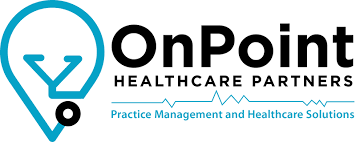
The Evolution of Healthcare Documentation
Historically, healthcare documentation was a labor-intensive process involving manual note-taking. While essential to monitoring patient medical history, this method was time-consuming and prone to errors, leading to inconsistencies in many patient records. The introduction of Electronic Health Records (EHRs) marked a significant improvement in clinical documentation, aiming to standardize note creation and enhance the accuracy of patient records. Despite these advancements, many healthcare providers found themselves spending excessive amounts of time typing notes into their EHR, effectively turning doctors into typists and detracting from their primary role of caring for patients.
Physicians often report elevated levels of burnout due to the administrative burdens placed upon them. Studies indicate that over 63% of physicians experience some degree of professional burnout, with documentation tasks being a significant contributing factor . This administrative overload not only affects their job satisfaction but also has detrimental effects on patient care, as it reduces the time available for direct patient interactions (50% reduction in provider productivity on average across the country).
The introduction of AI in healthcare documentation represents a transformative shift aimed at addressing these challenges. AI-powered transcription technology leverages natural language processing (NLP) and machine learning algorithms to transcribe and organize clinical notes with remarkable accuracy. These systems not only capture spoken words but also understand the context, ensuring that the documentation is both precise and comprehensive.
Recent market trends show a substantial increase in the adoption of AI transcription services within the healthcare sector. The market for AI-driven transcription is projected to grow significantly, with cloud-based solutions leading the way. The global medical transcription software market size is projected to grow from $2.27 billion in 2023 to $6.45 billion by 2030 at a CAGR of 16.1% (Fortune Business Insights). The primary reasons for this shift include the higher costs and longer turnaround times associated with traditional transcription services, as well as a growing focus on automating clinical documentation processes.
Among the leaders in this space is OnPoint Healthcare Partners, which has their flagship product, IRIS. IRIS exemplifies a clinically intelligent approach to healthcare documentation by integrating AI with clinical expertise. This unique combination ensures that the documentation is not only accurate but also contextually relevant, aligning closely with the needs of healthcare providers. IRIS's AI-driven system captures detailed and contextually appropriate information, significantly enhancing the overall quality of patient records and creating a Translational service in comparison to the more transcription-oriented solutions in the market.
A key component of IRIS's success is its proprietary learning loop and quality assurance (QA) process. This system incorporates continuous learning from real-world data and feedback, allowing the AI to improve its performance over time. Additionally, the QA process involves experienced QA physicians who review and validate the AI-generated documentation. This blend of advanced technology and human oversight ensures the highest levels of accuracy and reliability. The integration of QA physicians provides a critical safety net, verifying that the documentation meets stringent clinical standards before the treating physician finalizes it.
One of the most notable achievements of IRIS by OnPoint is its proven clinical accuracy rate of 98.6%, which significantly enhances the reliability of clinical documentation. This important level of accuracy is crucial for maintaining the quality of patient care and reducing the risk of medical errors. According to a study published in the Journal of the American Medical Association, medical errors are the third leading cause of death in the United States. By ensuring precise and comprehensive documentation, IRIS helps mitigate this risk to the end-user practicing provider, improving patient outcomes.

CEO Jim Boswell emphasizes, "Our proprietary AI algorithms and advanced natural language processing capabilities allow IRIS to deliver unparalleled accuracy and efficiency. With an average review time of under 90 seconds, IRIS empowers healthcare providers to focus on what truly matters: patient care." A study by the American Medical Association found that AI-driven solutions can save physicians up to 17% of their workday, translating to significant time savings and improved work-life balance. Comparatively, through a unique combination of AI and Clinical oversight, IRIS allows physicians to reclaim 3–4 hours per day that can be redirected towards patient care and other critical tasks. That is a 50% efficiency gain for physicians using IRIS. This efficiency not only alleviates the administrative burden on healthcare providers but also enhances their overall job satisfaction and reduces burnout.

Recognizing that the integration of innovative technology can be challenging, OnPoint offers extensive training programs and resources to ensure a smooth transition for healthcare providers adopting IRIS. Continuous support and training are critical components of OnPoint's approach, helping healthcare providers maximize the benefits of IRIS and address any issues that may arise. According to a report by Accenture, healthcare organizations that provide adequate training and support for AI integration are more likely to see successful implementation and higher satisfaction rates among users.
The future of AI in healthcare documentation looks exceedingly promising, with continuous advancements poised to revolutionize the industry. As technology evolves, AI-powered transcription systems are expected to become even more sophisticated, offering deeper insights and managing more complex tasks. Advancements in AI algorithms will focus on improving natural language processing (NLP) capabilities, enabling systems to understand and process more complex medical terminology and context. Emerging technologies like deep learning and neural networks are expected to enhance AI's ability to learn from vast datasets, refining its accuracy over time and reducing the need for human intervention. With continuous advancements, the journey ahead is filled with opportunities for growth, innovation, and improved healthcare outcomes for all.
© 2025 ScienceTimes.com All rights reserved. Do not reproduce without permission. The window to the world of Science Times.












